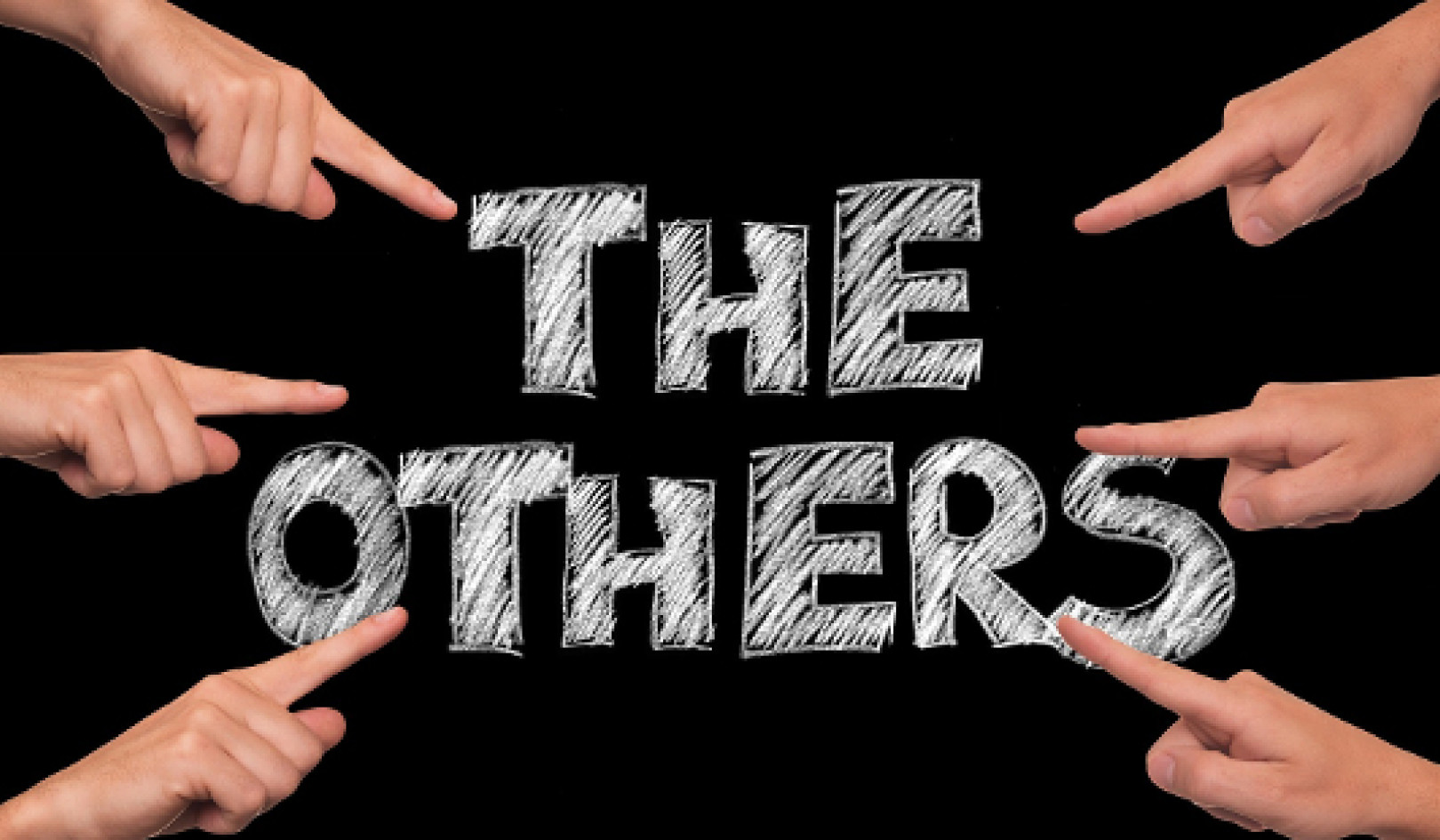
In his book The Lost World of the Kalahari, Sir Laurens van der Post described how Bushmen in the Kalahari Desert in southern Africa were in telepathic contact far beyond the range of sensory communication. On one occasion, when he had been out hunting with some Bushmen, he found that people who had stayed behind in the camp knew they had killed an eland fifty miles away and also knew when they would be returning. They compared their method of communication with the white man’s telegraph, or “wire.” As they were heading back in Land Rovers laden with meat, van der Post asked one Bushman how the people would react when they learned of their success. He replied, “They already know. They know by wire. . . . We bushmen have a wire here”—he tapped his chest—“that brings us news.”
Probably most people in modern societies would have too little confidence in telepathy to try to communicate with others just by this means. Telephones provide a more reliable and effective method. Yet, ironically, the very intention of calling someone at a distance by telephone creates favorable conditions for telepathy. The callers think about the people they want to call, maybe look up their numbers, then dial them. All this time they are focusing their attention on the people they want to call. Whether they like it or not, their intention may be detectable telepathically.
Thinking of Someone ?Who Then Calls
Obviously there is nothing strange about anticipating a call from someone expected to ring. What is strange is how many people have found that when they start thinking about a particular person, the phone rings and that person is on the line. Generally such calls are from people with whom the person is familiar and shares an emotional bond. Occasionally, they involve distant acquaintances, or negative emotions, or both.
Quite often, people are not aware of thinking about a particular person beforehand, but while the phone is ringing they know who is on the line. For example, Dr. Eleanor Pryor, from Australia, told me, “With my best friend, I would say that about 70 to 80 percent of the time, we know that it’s the other calling as soon as the phone rings, and this has continued over a period of about eighteen years.”
Actively ?Inducing People to Call
If you want someone to call, thinking about him sometimes seems to induce him to do so. I had an experience of this kind myself when I was living in Hyderabad, India, and particularly needed to get in touch with an English friend who lived several miles away and did not have a phone. He rarely called me. I was wondering how I could possibly get a message to him. After about ten minutes the phone rang, and there he was, calling from a public telephone, saying he felt he needed to call but didn’t know why.
Joann Ertz, of Tacoma, Washington, used to do this with her mother as a kind of game.
It began with her telling me one day that we should both concentrate on each other and have the thought “Call me,” and every time it worked. It actually got to be a joke between us, and on several occasions I couldn’t think of anything else but that I needed to “call Mom.” When I did, she would be laughing, and say, “I just wanted to see if it still worked. How are you?”
Who Influences Whom?
 As we have seen, sometimes people think about a person who then calls, as if he or she were picking up the caller’s intention. Sometimes it works the other way around, and someone wants another person to call, who then rings. Quite often the direction of influence is ambiguous: “About six years ago I called a friend long distance whom I hadn’t spoken with in months, to find upon her answering that she was in the process of looking up my number to call me when the phone rang. Since then I have experienced this phenomenon many times”.
As we have seen, sometimes people think about a person who then calls, as if he or she were picking up the caller’s intention. Sometimes it works the other way around, and someone wants another person to call, who then rings. Quite often the direction of influence is ambiguous: “About six years ago I called a friend long distance whom I hadn’t spoken with in months, to find upon her answering that she was in the process of looking up my number to call me when the phone rang. Since then I have experienced this phenomenon many times”.
How Common ?Are These Experiences?
Seemingly telepathic experiences with telephones are very common. Indeed, they seem to be the commonest kind of telepathic experience in the modern world. Any reader who doubts this can carry out an informal investigation by asking family members, friends, or colleagues if they have had experiences of apparent telepathy in relation to telephone calls. I predict that many, probably most, will say that they have.
Over a period of five years, I have asked people at lectures, seminars, and conferences in Europe and North and South America whether they had known who was calling before they answered the phone in a way that seemed to be telepathic. On the basis of a show of hands, between 80 and 95 percent claimed to have had this experience.
Second, I have asked groups of people attending lectures and seminars in Britain, Germany, the United States, and Argentina to fill out questionnaires about their experiences with telephones. The first question was, “Have you ever thought of somebody just as the telephone rang, or just before, and it was indeed the person you had been thinking of? (Exclude anticipations that could have an ordinary explanation and include only those that seemed telepathic.)” In total, 1,562 out of 1,691 people, or 92 percent of those completing the questionnaire, answered yes.
Third, my research associates and I have carried out formal surveys by telephone of a random selection of households in England and the United States. In these surveys about half of the respondents said they had felt they knew who was calling before they answered the phone. An even higher percentage said they had telephoned someone who said they were just thinking about telephoning them. In England the average was 65 percent, and in California 78 percent. In all cases, more women than men claimed to have had these experiences.
These surveys also showed that seemingly telepathic experiences in anticipating telephone calls were more frequent than any other kind of telepathic experience.
Reprinted with permission of the publisher,
Park Street Press, an imprint of Inner Traditions Inc.
©2003, 2013 by Rupert Sheldrake. www.innertraditions.com
This article was adapted with permission from Chapter 12 of the book:
The Sense of Being Stared At: And Other Unexplained Powers of Human Minds
by Rupert Sheldrake.
 In this newly updated edition, Sheldrake shares his more than 25 years of research into telepathy, the power of staring, remote viewing, precognition, and animal premonitions. Drawing on more than 5,000 case histories, 4,000 questionnaire responses, and the results of experiments on staring, thought transference, phone telepathy, and other phenomena carried out with more than 20,000 people as well as reports and data from dozens of independent research teams, Sheldrake shows that these unexplained human abilities--such as the sense of being stared at--are not paranormal but normal, part of our biological nature. Sheldrake shows that our minds and intentions extend beyond our brains into our surroundings with invisible connections that link us to each other, to the world around us, and even to the future.
In this newly updated edition, Sheldrake shares his more than 25 years of research into telepathy, the power of staring, remote viewing, precognition, and animal premonitions. Drawing on more than 5,000 case histories, 4,000 questionnaire responses, and the results of experiments on staring, thought transference, phone telepathy, and other phenomena carried out with more than 20,000 people as well as reports and data from dozens of independent research teams, Sheldrake shows that these unexplained human abilities--such as the sense of being stared at--are not paranormal but normal, part of our biological nature. Sheldrake shows that our minds and intentions extend beyond our brains into our surroundings with invisible connections that link us to each other, to the world around us, and even to the future.
Click here for more info or to order this book on Amazon.
About the Author
 Rupert Sheldrake, Ph.D., is a former research fellow of the Royal Society and former director of studies in biochemistry and cell biology at Clare College, Cambridge University. From 2005 to 2012 he was director of the Perrott-Warrick Project on unexplained human abilities, funded from Trinity College, Cambridge. He is currently a fellow of the Institute of Noetic Sciences, near San Francisco, and a visiting professor at the Graduate Institute in Connecticut. He is the author of more than 80 technical papers and articles appearing in peer-reviewed scientific journals and 10 books, including Dogs That Know When Their Owners Are Coming Home, Morphic Resonance, and Science Set Free.
Rupert Sheldrake, Ph.D., is a former research fellow of the Royal Society and former director of studies in biochemistry and cell biology at Clare College, Cambridge University. From 2005 to 2012 he was director of the Perrott-Warrick Project on unexplained human abilities, funded from Trinity College, Cambridge. He is currently a fellow of the Institute of Noetic Sciences, near San Francisco, and a visiting professor at the Graduate Institute in Connecticut. He is the author of more than 80 technical papers and articles appearing in peer-reviewed scientific journals and 10 books, including Dogs That Know When Their Owners Are Coming Home, Morphic Resonance, and Science Set Free.

























